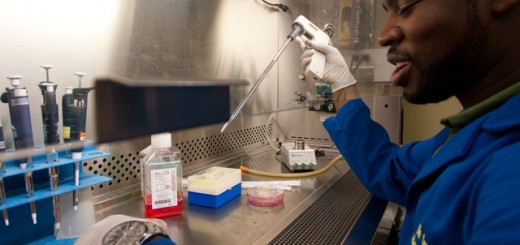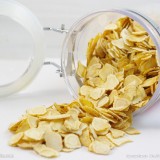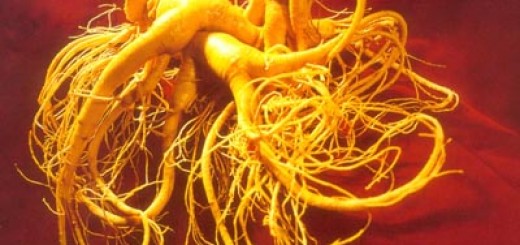2015年最新一期的《天然产品报告》(Natural Product Reports)将刊登一篇关于人参抗癌的综述。
该综述回顾了最近10余年来260余篇对人参及其活性皂苷的研究文献,发现从西洋参中提取的人参皂苷具有广泛和强烈的抗癌活性。现在把该文章的一些要点摘录如下:
- 人参皂苷属于达玛烷我皂苷,可以分为两大类:原人参二醇组(如:Rb1, Rb2, Rc, Rd, Rg3, Rh2)和原人参三醇组(如:Re, Rf, Rg1, Rh1),这些皂苷最终代谢活化为达玛烷苷元PPD(原人参二醇)和PPT(原人参三醇)。其中原人参二醇组的抗癌活性较强,而原人参三醇组皂苷很少具有抗癌活性。
- 总人参皂苷能够显著降低促炎症因子(如TNF-alpha,白介素-1β,白介素-6,诱导型一氧化氮合酶和环氧化酶-2等)的产生。而这些促炎症因子被认为能够诱发基因或外基因的改变,与肿瘤发生有关。
- 细胞内活性氧的水平与肿瘤发生密切相关,而人参皂苷具有强烈的抗氧化作用,能够清除活性氧。单个人参皂苷的抗氧化活性依次为:Rc > Rb2 > Rg2 > Rh2 > Rh1 > Rf > Rg3 > Rg1 > Rb1 > Re > Rd。
- 人参皂苷能够调节一些重要的激酶(如CDK等),从而控制肿瘤细胞分裂,并且阻止肿瘤进入活跃分裂期。
- 人参皂苷通过抑制端粒酶,诱导肿瘤细胞产生凋亡。
- 人参皂苷能够诱导肿瘤细胞向正常方向分化。
- PPD类人参皂苷具有抑制血管生成的作用,从而能够降低肿瘤内血管密度,控制肿瘤生长。
- 人参皂苷能够抑制多种蛋白酶,从而保持血管基底膜的完整性,防止肿瘤细胞从血管或淋巴入侵转移。
- 人参皂苷是通过甾体受体依赖和非依赖途径来发挥抗癌活性的。
- 人参皂苷通过基因和非基因途径来发挥其药理作用的。
- 人参皂苷能够改变微小RNA(miRNA)的表达, 从而调节和控制肿瘤的血管生成、凋亡、染色体修改、细胞增殖和分化。
- 人参和人参提取物对人体脏器没有毒性。
- 人参产品能够显著改善肿瘤导致的机体疲劳。
- 人参皂苷与多种化疗药物有协同作用,能够增强化疗的疗效,并且保护脏器免受化疗药物损害。
Recent advances in ginseng as cancer therapeutics: a functional and mechanistic overview.
Nat Prod Rep. 2014 Oct 27;
Authors: Wong AS, Che CM, Leung KW
Abstract
Cancer is one of the leading causes of death worldwide. Ginseng, a key ingredient in traditional Chinese medicine, shows great promise as a new treatment option. As listed by the U.S. National Institutes of Health as a complementary and alternative medicine, its anti-cancer functions are being increasingly recognized. This review covers the mechanisms of action of ginsenosides and their metabolites, which can modulate signaling pathways associated with inflammation, oxidative stress, angiogenesis, metastasis, and stem/progenitor-like properties of cancer cells. The emerging use of structurally modified ginsenosides and recent clinical studies on the use of ginseng either alone or in combination with other herbs or Western medicines which are exploited as novel therapeutic strategies will also be explored.PMID: 25347695 [PubMed – as supplied by publisher]
Source: Ginsenosides













































